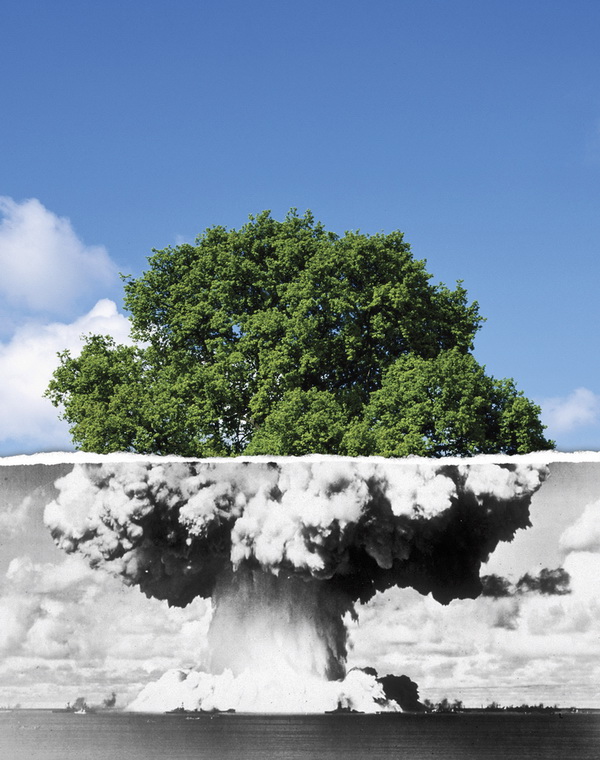
I’ve been thinking about Jeremy Rifkin’s talk on ‘The Empathetic Civilisation’ which he gave at the RSA last year. It sparked my interest because of this quote:
“There is no empathy in heaven, because there is no mortality. There is no empathy in utopia, because there is no suffering.”
This made think a little about our traditional ideas of heaven and hell:
Taking what Rifkin says, those entering heaven will have to leave their empathetic sensibilities at the Pearly Gates, because there cannot be empathy for those left behind. If there were, there would be regret and sadness, and these are not permitted.
I think that this forces us to reject the traditional notion of heaven as a final, bounded place from which all pain is excluded, and from which those who are ‘lost’ are excluded too.
In the comments on the previous post, Roland noted that “hell is not something Jesus ever threatened people with. He loved everyone.” What is interesting to note about the incarnation is that Jesus had to leave ‘heaven’ in order to properly empathise with us.
This is a principle that religion likes to forget. Heaven has been abandoned because God saw that it was a sterile, unempathetic place. Instead, the church is called to create ‘dirty heaven’ here on earth – a heaven in the midst of hell, if you will, because this is the true locus of love.
I think we can use this to twist the Zizekian understanding of the early church. His understanding is that the Christian community gathers around the death of God. They are the true atheists because they see that the Holy Spirit – the Spirit of the divine – is in the sacrificial, loving, empathetic gathering with one another to serve the poor.
What we might now do is to say that it is not the death of God that signifies this community, but the abandonment of heaven. The truly empathetic community is the one that has given up on the idea of the perfect place to come, and is happy to have abandoned heaven, as Jesus did, in order to make dirty heaven, right here.
Comments
6 responses to “The Empathetic Civilisation | Dirty Heaven [3]”
Kester, have you read David Eagleman’s book, Sum? Think this would add something interesting to your line of thinking, and would like to know your take on it too.
Excellent posts, Kester. Wondering what this does to ideas in the biblical text about ‘no more death or mourning or crying or pain, for the old order of things has passed away’? Is this just a manner of speaking? Or apocalyptically-colored panacea in the midst of present suffering?
Also glad to hear my soon-to-be 8 year-old might finally start noticing the rest of us. 🙂
Bryan, in relation to the “no more death or mourning” I think we have to look at that entire chapter and how the New Heaven and the New Earth descend not unlike Jesus. So perhaps Kester’s ideas regarding a “dirty heaven” are connected to the fact that we have a “dirty messiah”.
My I suggest a further resources to learn more about empathy and compassion.
The Center for Building a Culture of Empathy
The Culture of Empathy website is the largest internet portal for resources and information about the values of empathy and compassion. It contains articles, conferences, definitions, experts, history, interviews, videos, science and much more about empathy and compassion.
http://CultureOfEmpathy.com
More on Jeremy Rifkin
http://cultureofempathy.com/References/Experts/Jeremy-Rifkin.htm
Also, we invite you to post a link to your article about empathy to our Empathy Center Facebook page.
http://Facebook.com/EmpathyCenter
Let’s Find 1 Million People Who Want to Build a Culture of Empathy and Compassion
http://Causes.com/Empathy
More over maybe the death of God is the Culmination of his descent from Heaven. There are many story’s and myths that after Jesus’ Death he descended to Hades and ministered to the dead. The ultimate act of Empathy and Human Solidarity for God would be to experience Death and Judgement. After which I can see that God would maybe give up Hell.
Hi Kester,
Sorry i’m late to this, but i’m interested and wonder if you are still having this conversation at all – if so i’d like to ask a couple of questions.
1) i can’t help but feel that the inclusion of empathy in heaven is a false assumption, which would take away the foundations of the argument. Yes, empathy is very important, and i value it as a precious gift. But equally so are faith and hope. Both of those, we are told, will no longer be needed in heaven – otherwise God will be required to not be there… *yet*! Maybe empathy is the same? i’m sure you know more than me, but i’m not aware of any mention of the word empathy in the old bible.
2) The idea that Jesus never threatened people with hell. Again, i agree, but he did mention it more than he mentioned heaven. And he did warn people about it a heck of a lot, so again that seems to me to be an assumption that you can’t really build an argument on.
very happy to be corrected, but would love to explore these ideas further if you are still on this theme.
cheers,
laul.